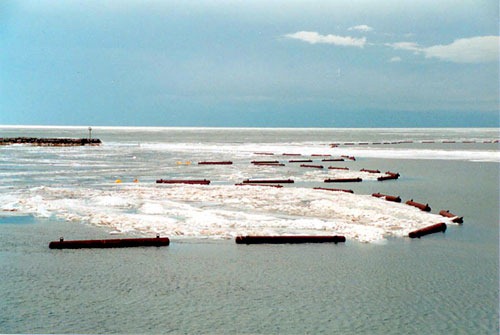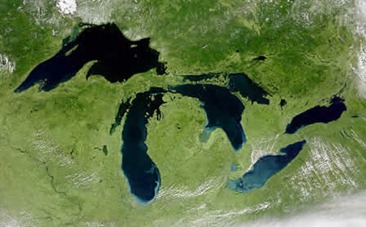Federal judge will hear Asian carp case
0 After months of trying, five Great Lakes states will have their day in court to argue for Chicago-area lock closures to stop the Asian carp.
After months of trying, five Great Lakes states will have their day in court to argue for Chicago-area lock closures to stop the Asian carp.
A three-hour initial hearing was held in federal court in Chicago yesterday, and Judge Robert Dow scheduled additional hearings for expert testimony in early September.
The September hearings will be the first time the case will be heard on its merits. The Supreme Court twice rejected requests for a preliminary injunction to hear the case but did not rule on the legal claims themselves.
The lawsuit aims to force Chicago to keep two locks — the O’Brien and Chicago Locks — closed except during emergencies, such as when the city could be at risk of flooding or if vessels need to pass through for emergency response. The closures would be in the interest of creating a physical barrier between Chicago’s waterways and Lake Michigan.
Pennsylvania, Michigan, Minnesota, Wisconsin and Ohio filed the suit last month against the U.S. Army Corps of Engineers and the Metropolitan Water Reclamation District of Greater Chicago. The legal action came shortly after the June 22 catch of a 19-pound bighead carp just six miles downstream from Lake Michigan, beyond the electric barrier meant to prevent fish from entering the Great Lakes.
The five states’ case will likely rely heavily on carp eDNA evidence that has placed the fish near Lake Michigan since last year. The case could hinge on the reliability of this experimental DNA research, since the June 22 catch is as of yet the only carp sighted beyond the electric barrier.
Michigan Assistant Attorney General Robert Reichel said the carp could create a “biological tipping point” for invasive species entering the Great Lakes and that it could irreversibly damage a multi-billion dollar commercial and recreational fishing industry. Reichel said the man-made shipping corridor into Lake Michigan has fostered direct access for the invasive species.
“We have here a carp highway,” he said during the initial hearing.
The defense, led by Department of Justice Attorney Maureen Rudolph, noted that the Supreme Court has already rejected lawsuit twice, that the government has spent millions to control the carp over the last decade, and that closing the locks pose serious health threats to area residents. The lock closure, she noted, could also cause significant harm to the area’s economy, especially its boating industry.
More testimony will be heard during a three-day hearing in Chicago beginning Sept. 7, after which the judge will determine whether an emergency injunction is necessary.
What efforts do you think should be taken to stop the Asian carp? Share your thoughts and ideas in the comments below.
Asian carp battle moves to courtroom [Chicago Tribune] Michigan hails judge’s ruling in Asian carp fight against Chicago [The Christian Science Monitor] Judge continues to hear testimony in Asian Carp lawsuit [The Pierce County Herald]
Image Credit: http://www.flickr.com/photos/notionscapital/ / CC BY 2.0













